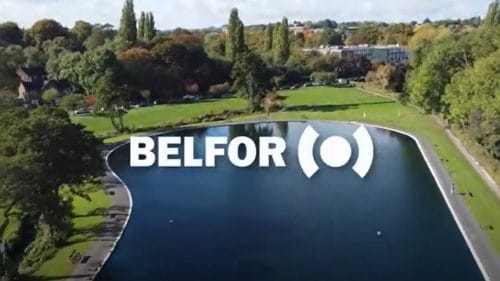The skilled worker visa changes are set to create a challenge for disaster restoration
By Hein Hemke, Managing Director, BELFOR UK
The disaster restoration industry is already facing a critical skills shortage. Now, the UK government’s proposed changes to the skilled worker visa system threaten to make finding qualified professionals even harder. These include plans to raise the minimum skill level to Regulated Qualifications Framework (RQF) Level 6 (degree level).
Finding skilled workers in disaster restoration has never been easy. It’s a demanding field that requires technical expertise, administrative skills, and emotional resilience. Restoration professionals step into homes and businesses at their most vulnerable moments – after fires, floods, and other catastrophic events. They must not only rebuild structures but also navigate complex insurance paperwork and support clients through emotionally charged situations.
Yet, despite the critical nature of this work, recruitment remains an uphill battle. The industry isn’t highly paid, and the expectations placed on workers are immense. Many restoration technicians earn the same or even less than some cleaning staff despite requiring far more specialised skills.
I understand the government’s rationale: encourage domestic employment by restricting lower-skilled immigration. On paper, it sounds logical. But in reality, it’s far too simplistic. If it were that easy, why don’t we already see more people stepping into these roles? Why are businesses across multiple sectors still struggling to find workers?
The disaster restoration industry, like many others, has dedicated recruitment teams and in-house development programmes to upskill workers. At BELFOR UK, we invest heavily in coaching and skill-building. Our industry-leading training facility in Luton offers hands-on experience, from leak detection to full disaster recovery scenarios. In Wellingborough, our bespoke leak detection practice centre allows trainees to sharpen their skills in simulated real-world conditions. We do everything we can to upskill workers – but the talent pool simply isn’t big enough.
Beyond immigration concerns, the industry faces another challenge: a lack of standardised qualifications. While discussions have taken place among major players, there is no universally agreed-upon certification or apprenticeship framework. Should we follow BDMA (British Damage Management Association) standards? Adopt American-style training like IICRC? Or create something new altogether? The industry needs consensus – because without it, recruitment and training efforts remain fragmented, further deepening the skills gap.
The UK’s reliance on foreign workers is undeniable, across industries from healthcare to hospitality. The disaster restoration sector is no exception. If these visa changes go ahead, we risk losing access to the skilled professionals who help rebuild lives and businesses after disasters.
The proposed visa changes will only shrink the available workforce further, making it even harder to find qualified professionals willing to take on the challenges of this field. Instead of tightening immigration restrictions, we should focus on creating viable pathways for training, recruitment, and retention. Without action, the industry will continue to struggle – leaving businesses, homeowners, and insurers without the support they rely on in times of crisis.


